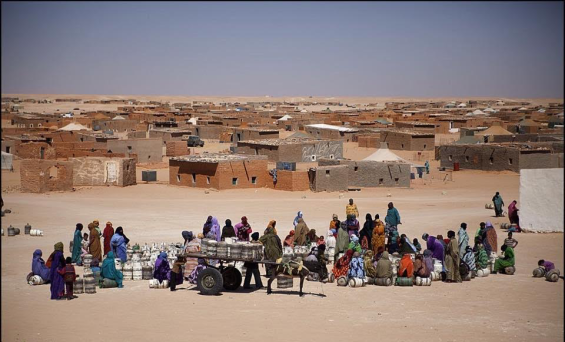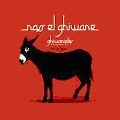Their numbers are growing daily. These are Sahrawis, often entire families, arriving from the Tindouf camps in Algeria to line up at the Moroccan Consulate in Nouadhibou, Mauritania, to request return to Morocco. Just a kilometer away lies the Nouadhibou International Airport, a gateway back to the country after decades of exile, or they can take National Road 2 along the border with Lagouira to reach Guerguarate.
However, before reaching the Moroccan diplomatic mission in Mauritania, these Sahrawis must endure arduous and sometimes dangerous journeys, according to one returnee interviewed by Yabiladi. Without permission from the Algerian army and the Polisario, they are forced to flee covertly, evading Algerian soldiers patrolling the Tindouf camps. Their escape often involves traveling day and night through desert tracks and sandy roads to reach Mauritania.
These Sahrawis «choose Morocco because they can no longer tolerate life in the camps, plagued by Algerian-imposed blockades, shortages of basic necessities, and a climate of insecurity. Many in the camps share this longing to return to the Sahara», explains the source.

Investigation before returning to Morocco
Reaching Mauritanian soil, however, does not mark the end of their ordeal. «The Moroccan authorities' response to Sahrawis' requests can take time, sometimes forcing them to return to the Tindouf camps», laments the contact.
Requests are meticulously examined by the Moroccan consulate in Nouadhibou and security services. Investigations focus on the applicants' origins and backgrounds. Following the tragic dismantling of the Gdiem Izik makeshift camp in Laayoune on November 8, 2010, which resulted in the death of 11 security personnel, the scrutiny of applicants’ political and security histories has intensified.
Notably, the Tindouf camps host not only Western Sahara families but also Algerian Sahrawis, including some in senior Polisario roles, as well as Malians from Azawad and Mauritanians. Many claim to be Sahrawis to receive humanitarian aid provided by the international community. This inflated refugee population, claimed by the Polisario to be 160,000, bolsters their demand for increased aid.
Morocco, on the other hand, estimates that 20,000 «Moroccans are sequestered in the Tindouf camps». This figure, cited by Morocco's UN representative Omar Hilale during discussions with Algerian delegates, underscores the Kingdom's readiness to welcome them back, affirming their Moroccan identity.





 chargement...
chargement...













